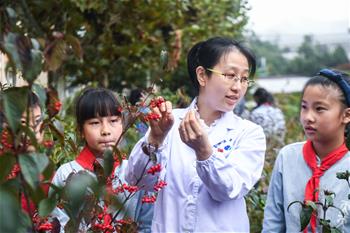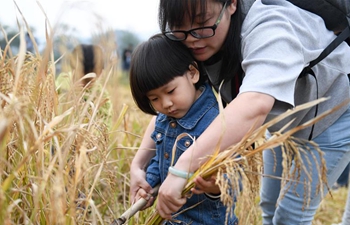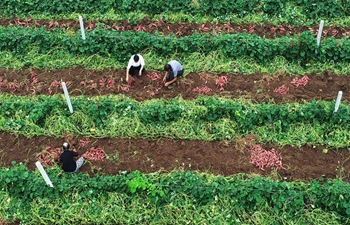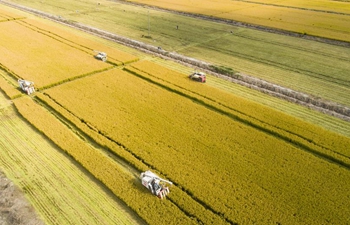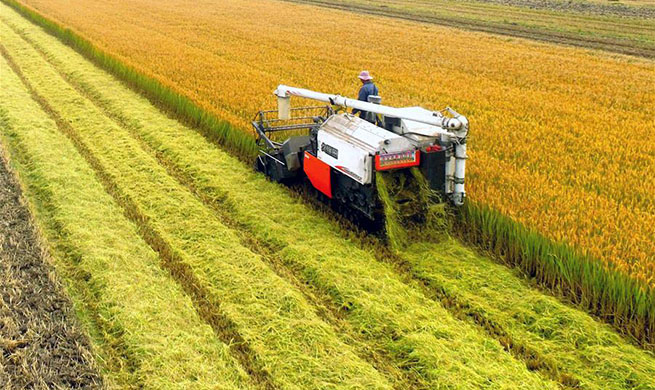NAIROBI, Oct. 22 (Xinhua) -- The majority of farmers in Africa have turned to bio-pesticides to fight the fall army worm (FAW) that is ravaging food crops in the continent, according to a study launched here on Monday.
The study, by the Center for Agriculture and Bioscience International (CABI), was conducted in 19 African countries early this year, using the latest version of the national lists of registered pesticides.
It found that bio-pesticides have proven to be effective in combating the fall army worm.
"Safe, sustainable and effective intervention such as bio-pesticide is becoming popular with farmers in the FAW-infested countries," said CABI Integrated Crop Management Adviser and lead researcher Melanie Bateman.
The study looked at 50 bio-pesticide active ingredients that have been registered in 11 countries in FAW's native range where farmers have been managing this pest for centuries and 19 in Africa where it is relatively new.
The study was conducted in Benin, Burkina Faso, Cameroon, the Democratic Republic of Congo, Ethiopia, Ghana, Kenya, Mali, Malawi, Mozambique, Nigeria, Rwanda, Sierra Leone, South Africa, Tanzania, Togo, Uganda, and Zambia. Tunisia was also included in the analyses as representing the Mediterranean countries that may be at risk of fall army worm invasion.
Of the products studied, 23, including Neem and Bacillus thuringiensis and sex pheromones and microbials that are registered within sub-Saharan Africa, are recommended for further consideration.
The bio-pesticide products included 417 botanicals, 274 microbial and 271 microbial extracts or fermentation products.
Bateman called on governments to start subsidizing bio-pesticides where they are not locally available and also consider opportunities for their production locally in partnership with the private sector to enhance their access.
The study also found that several African governments have given out insecticides to farmers, including some highly hazardous products.
"While some farmers might be willing to pay a premium for a lower risk product, many smallholder maize farmers in Africa already have small margins, so (they) will seek to minimize the additional cost of controlling a new pest such as the fall army worm," Bateman said.
The Food and Agriculture Organization of the United Nations (FAO) has developed a Framework for Partnership which emphasizes alternatives to pesticides, such as microbial and their extracts, botanicals, semi-chemicals, inorganic biochemicals, predators and parasitoids.
